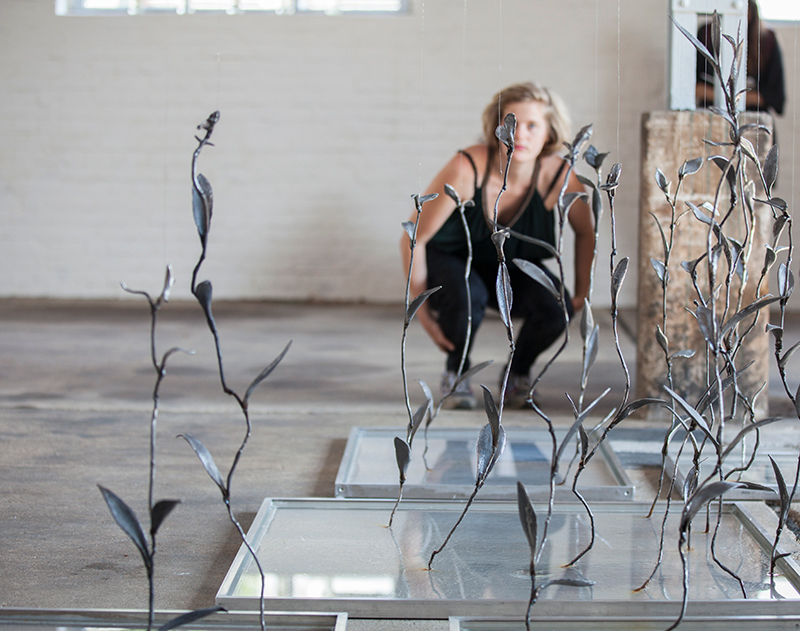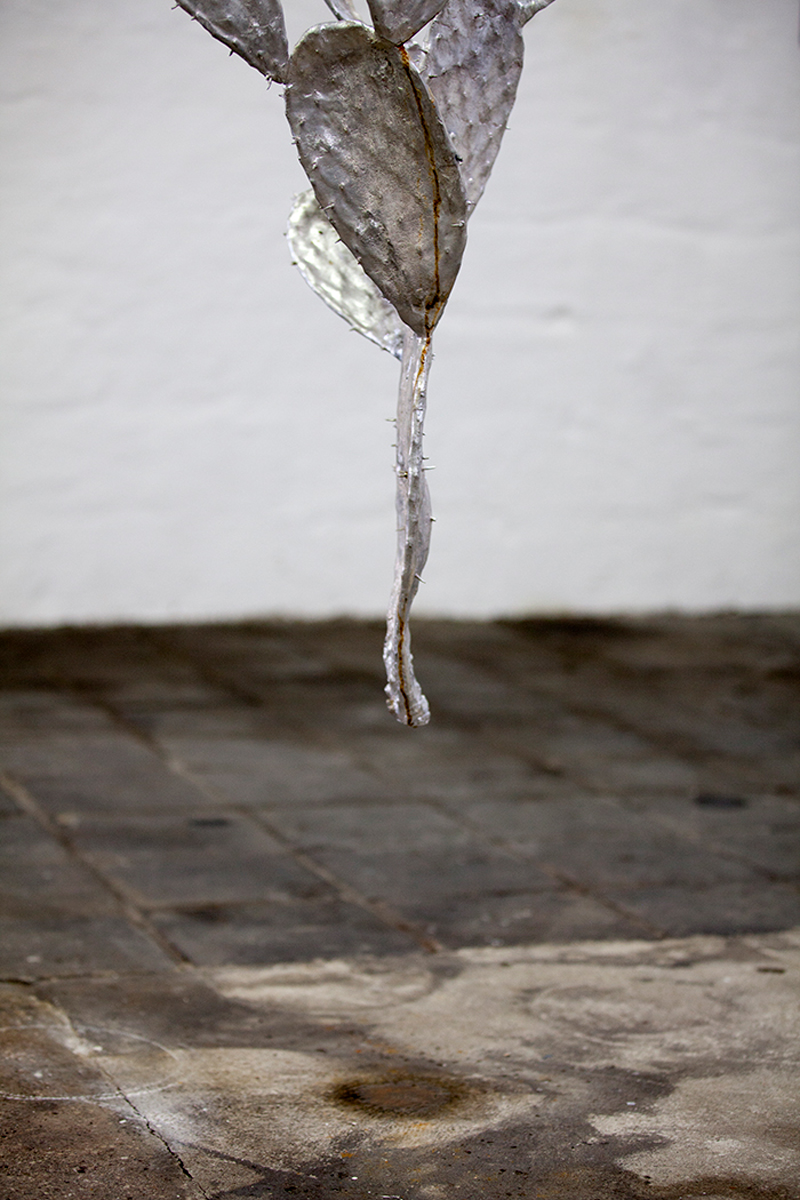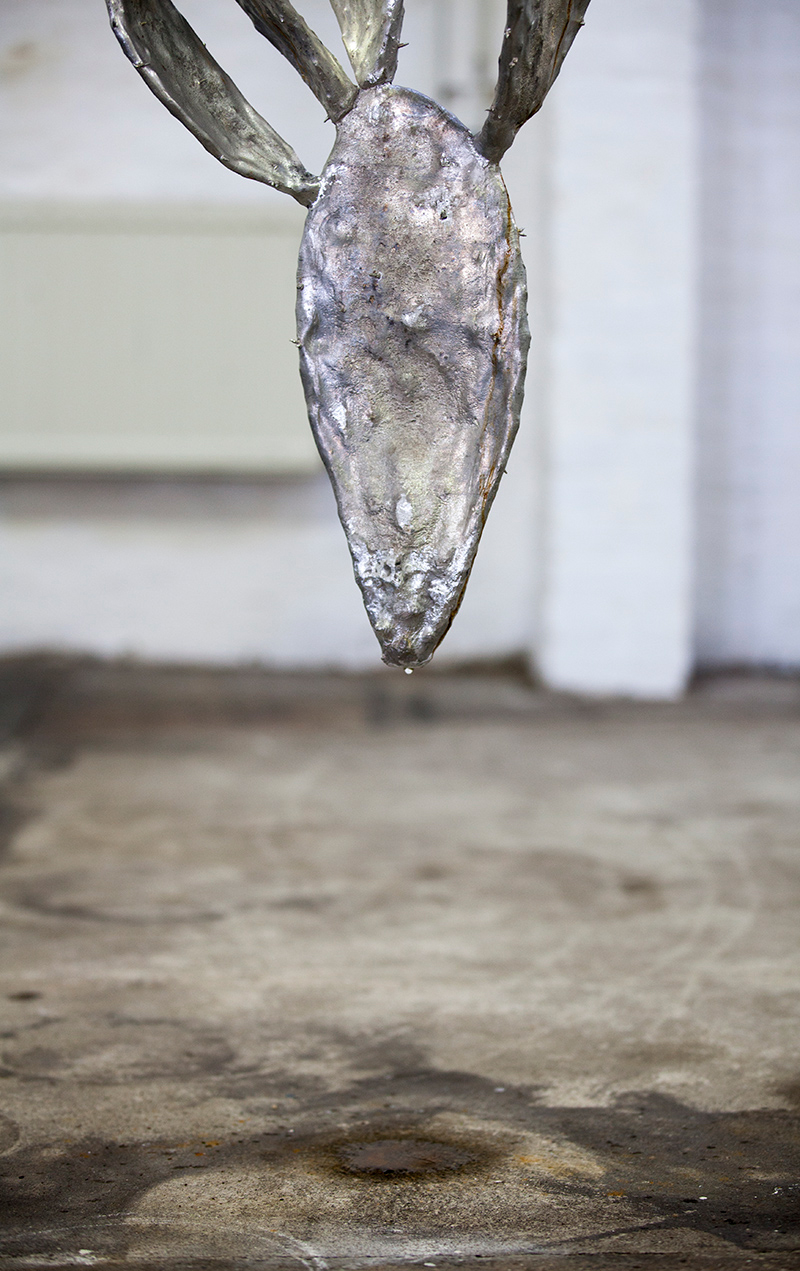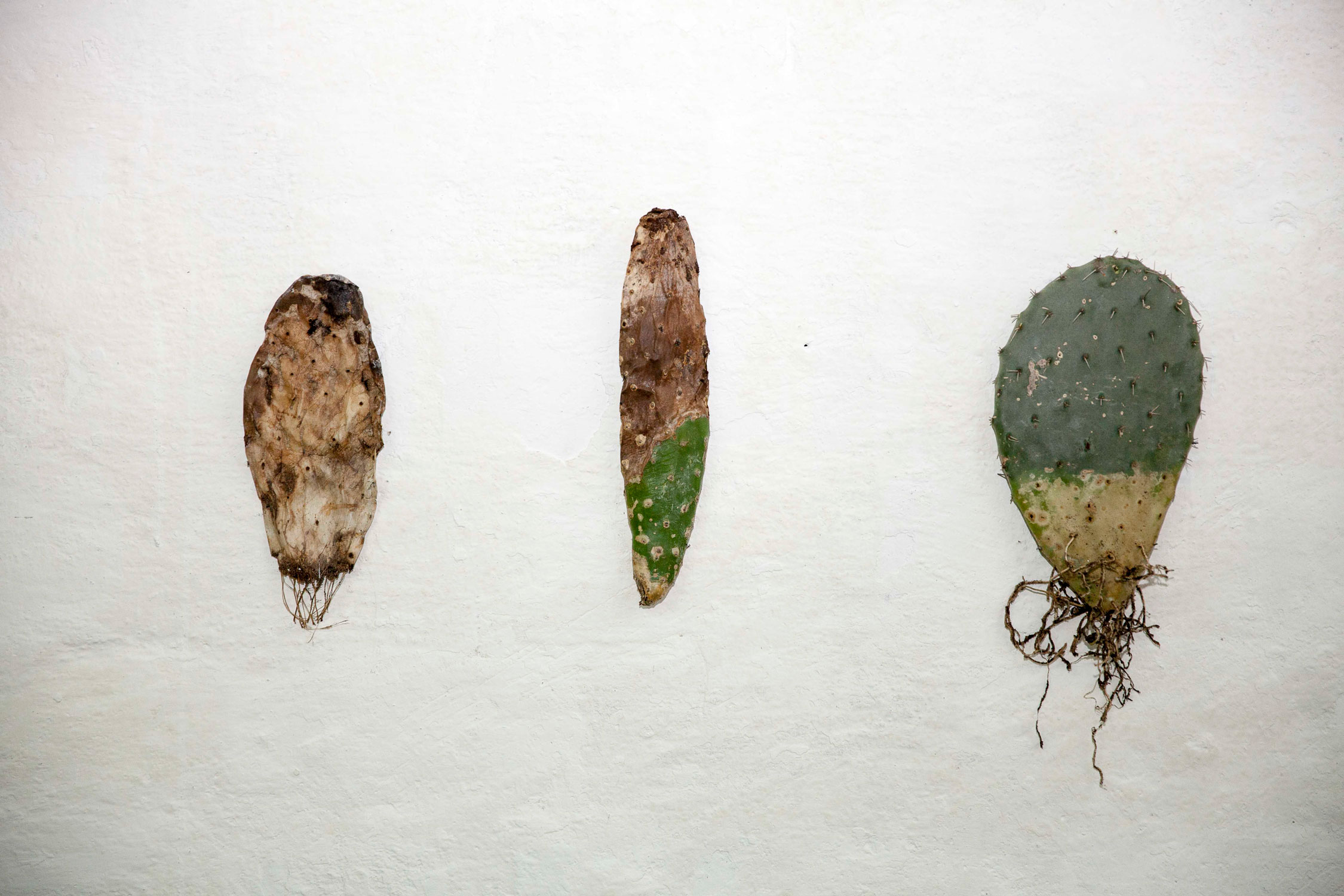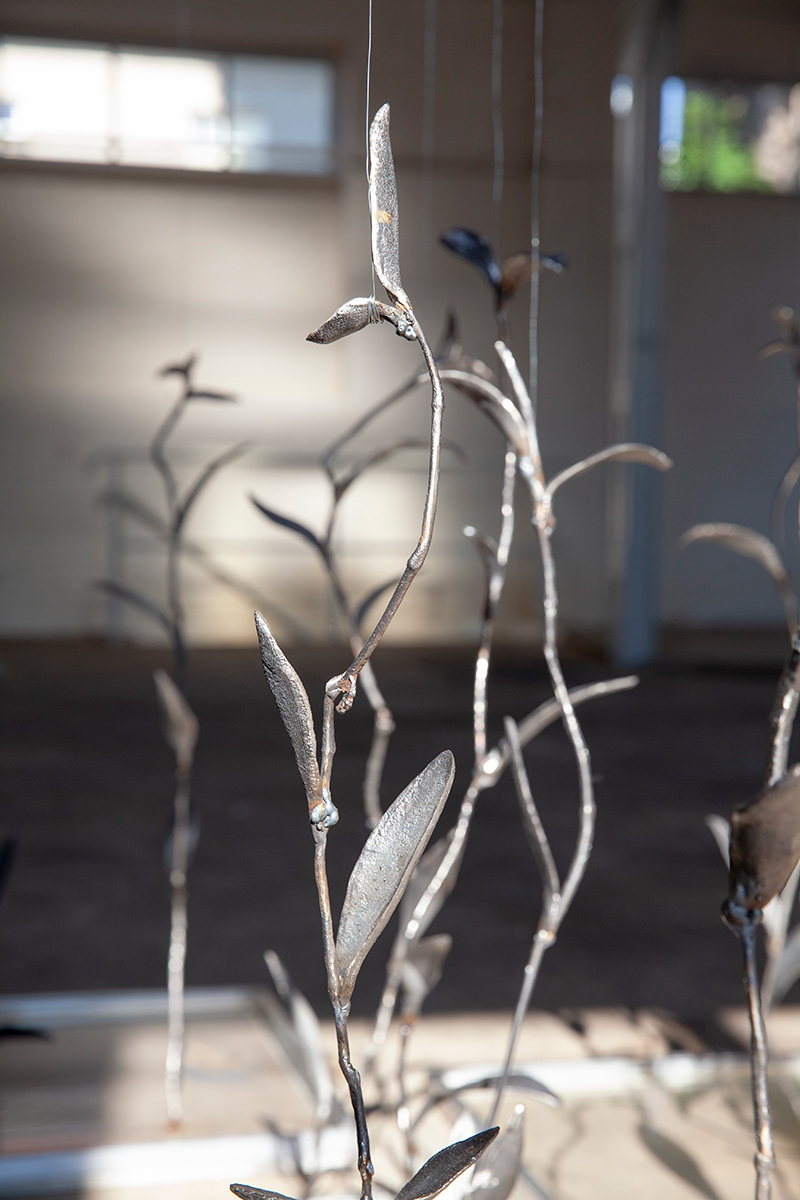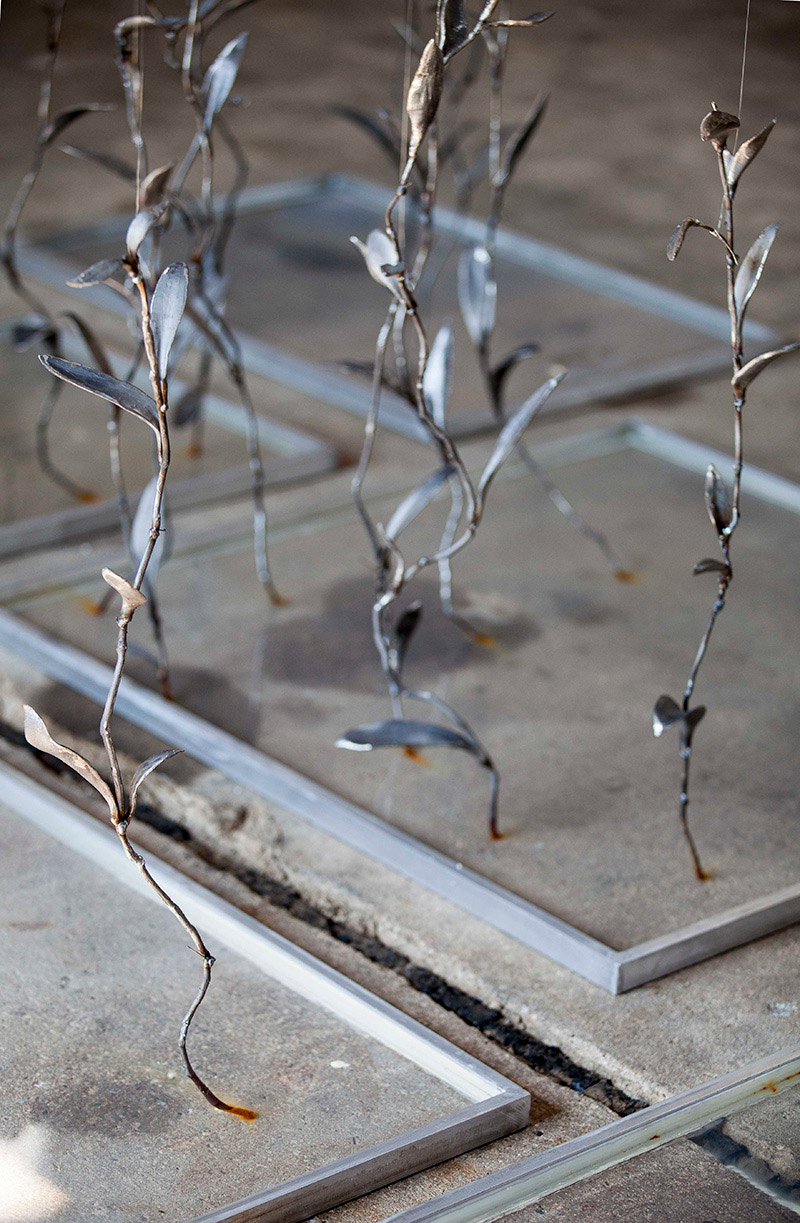Going down from the land 2020
Installation, Iron and Aluminum casting, wires, Plastic, water, aluminium profiles, Infusion equipment
Cactus: approx. 1 meter high, approx. 70cm diameter / Plants: approx. 24 pieces, each 50-100cm high /
pools: approx. 7 pieces, Squares and rectangles, 50-100cm wide / 50-100cm long / 3 cm high
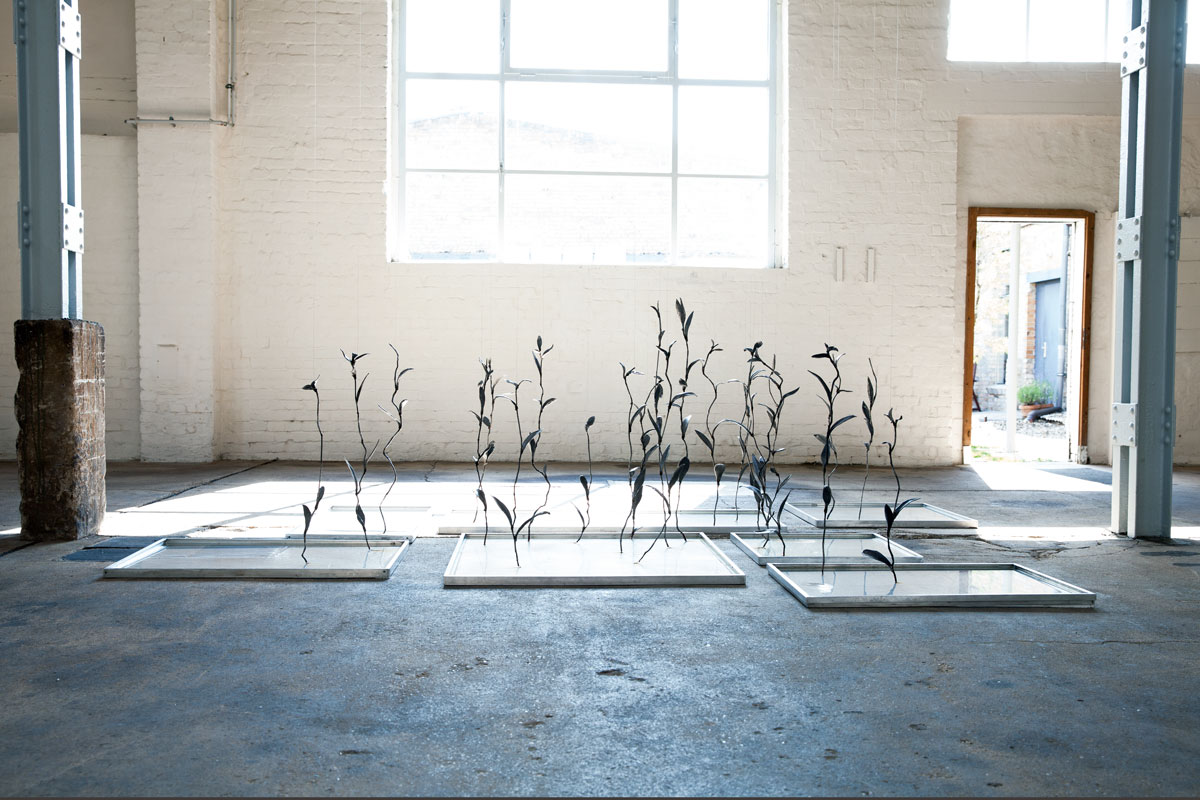
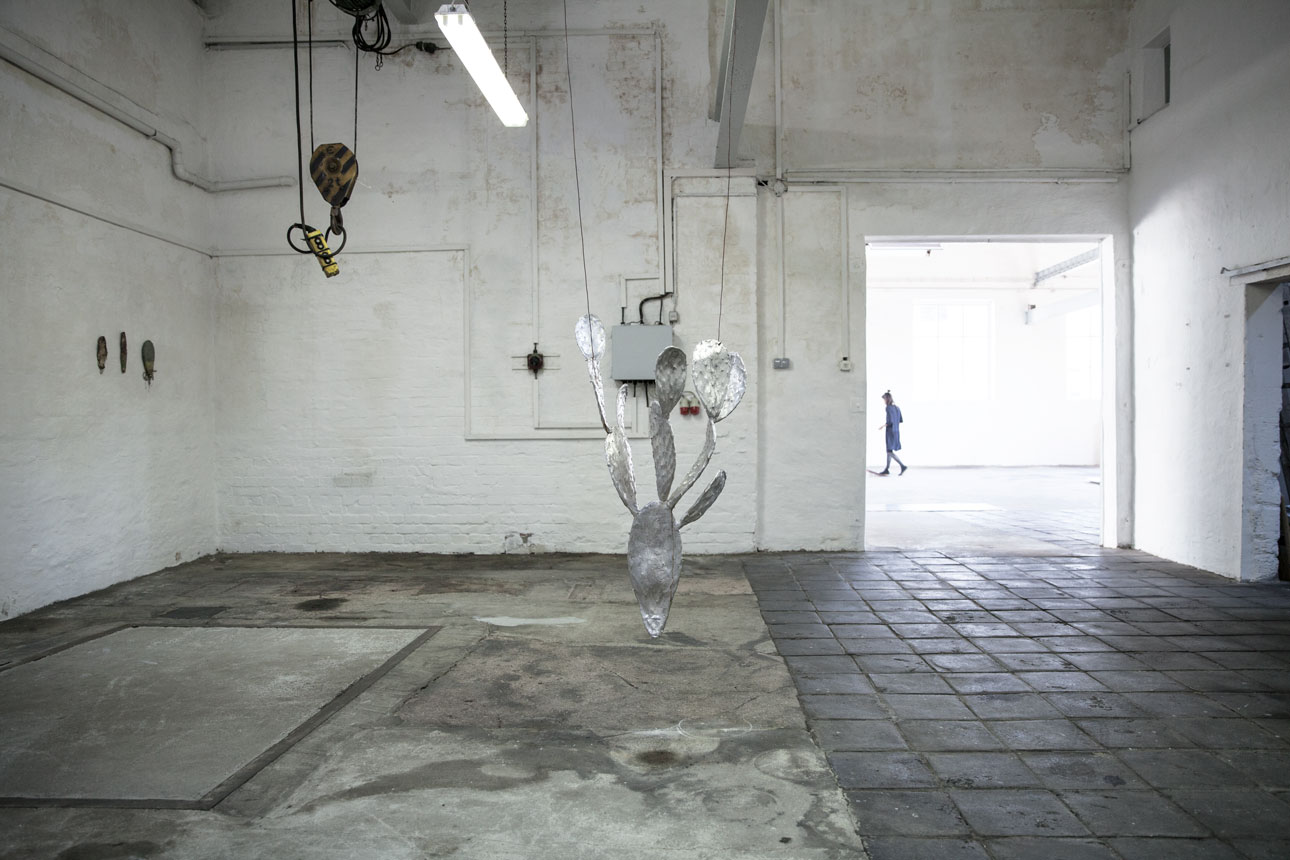
Two images are set up in two rooms, but in relation to one another: the plant of the Wandering Jew (Tradescentia pallida) and the cactus Opintia ficus-indica.The plants are cast from iron and aluminium respectively. In combination with water, they undergo a process of corrosion.
In the work with the Wandering Jew, water generates a metamorphosis and turns one material into another (iron into rust). In case of the cactus, it is running over the aluminium, leaves a trace of rust on its surface and produces a puddle on the floor. The traces of this puddle are going to stay, even after the work has moved to another place.
The iron cast plants of the Tradescantia pallida go by the name The Wandering Jew both in Hebrew and English. The Wandering Jew is a Christian myth about the Jew who – punished by Jesus – has to wander eternally, rootless and continuously in movement.
The aluminium cast cactus is called Tzabar in Hebrew. Since the 1950s, the Tzabar is a symbol for the new, Israel born Jew, as well as an inseparable component of the Palestinian culture.
The series of three cactus leaves brought from Israel displays a process. The cut off plants in glasses have no more leaves. Both form a contrast with the still, frozen metal plants. While the metal objects still have a future, the live plants are in a process of decay.
